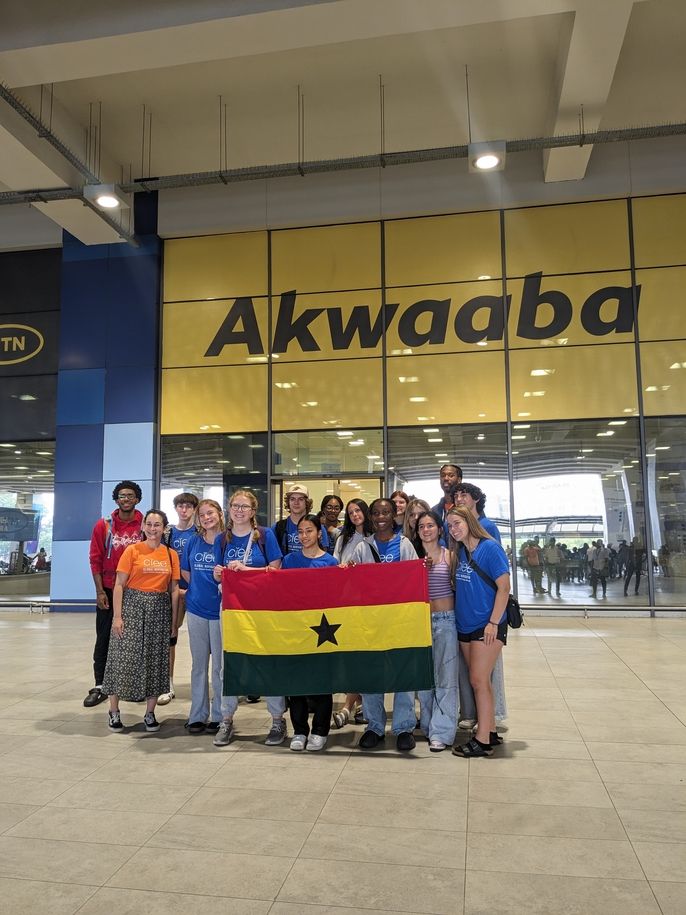Basic Twi for Going Out and About in Ghana
Like many other African countries, Ghana is multicultural and multilingual. Linguistic scholars like Opanin Agyekum say there are 50+ or 70+ Ghanaian languages depending on who is counting and how they are counting. Visitors are bound to encounter the various languages as they move about the country. In the Greater Accra region of Ghana where Accra, Ghana's capital and institutions like the US embassy are situated, the people speak Ga. It is widely spoken by indigenes of the region, especially in areas like Osu, Teshie, and Jamestown. Travelers are likely to hear Ga words and phrases like ‘ba’ which means come; ‘ofainɛ’ which means please, and ‘oyiwaladɔŋ’ which means thank you.
While Ghana is home to many ethnic groups and languages, some of these languages are more widely spoken than others. In Ghana, Twi, one of the languages spoken by the Akan people, is considered a widely spoken language. To navigate parts of the country temporarily, visitors are often introduced to basic Twi words and phrases to help them get by.
One of the first Akan words visitors to Ghana encounter on arrival is ‘Akwaaba’. At the airport, airport staff and third-party service providers like taxi drivers might say ‘akwaaba’ to visitors. In the arrival hall, travelers will find a bold printout of the word above the exit.
Akwaaba is said to people who have arrived from a journey. When one goes to work and returns home, their family can greet them ‘akwaaba’ upon their return. Akwaaba is simply Twi for welcome.
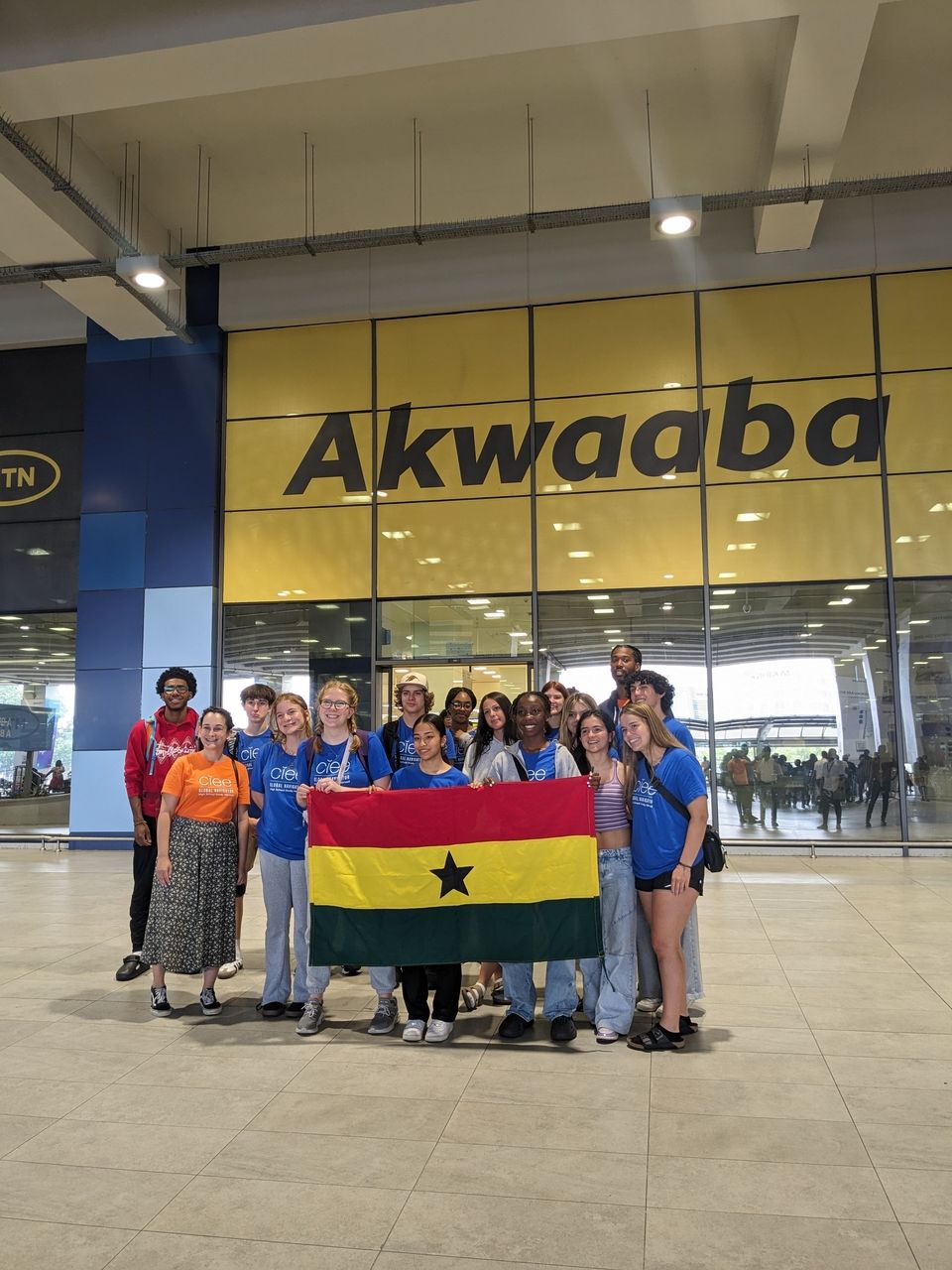
Here are 7 other Twi words and phrases for navigating the parts of Ghana where Twi is widely spoken:
- Wo din de sɛn?
Wo din de sɛn translates to What is your name? There is another way of asking: yɛ frɛ wo sɛn? Travelers are bound to encounter this question when they first engage with locals who speak Twi. One can respond by saying Me din de… or Yɛ frɛ me…
2. Wo ho te sɛn? Or Ɛtesɛn?
The expression wo ho te sɛn or ɛtesɛn is used to ask how one is faring. When people ask, they want to know how you are doing, how your entire being is doing.
The response to the question is Me ho yɛ, to wit, I am well/fine. In group settings, the wo in the question is replaced with mo (you, plural). And the ‘me’ in the response becomes ‘yɛ’ to signify that the group is fine/well.
3. Medaase.
Medaase can be broken up into Me Da Wo Ase. Me and Wo here are simply the pronouns Me and You. Da Ase is to give thanks/gratitude. Medaase in Twi means, I thank you. When a group wants to give thanks or show gratitude, the Me in Medaase becomes Yɛ (from Yɛn which is We). They say Yɛdaase.
Twi speakers might say “aseda nni hɔ” or “yɛnni aseda” to mean, you are welcome or it's okay, you do not owe me thanks.
4. Mepawokyɛw
Mepawokyɛw is simply please. Mepawokyɛw is a good way to start requests. As in other cultures around the world, using mepawokyɛw, please, is a way of being polite.
5. Ɛyɛ sɛn?
Ɛyɛ sɛn translates to “how much is it?” and is often used in market settings or at shops where prices for items are not displayed. The response to the question will begin with ‘ɛyɛ’ followed by the amount in Ghana cedis. Remember to be polite by beginning with mepawokyɛw.
6. Te so
Again, like many other African countries, Ghana has a bargaining culture. In open air produce, art and craft markets, one can bargain for items. Vendors typically expect buyers to bargain.
Ask for a reduction in price of items by saying te so. To be polite, say mepawokyɛw te so.
7. Wo ka Twi? / Wo te Twi?
While Twi is widely spoken, not everyone speaks or understands Twi. Even in Accra, the metropolitan city that is fast becoming cosmopolitan where Twi is pretty widely spoken, there are many people who do not speak and understand Twi. They might know a few words but may not be able to hold a basic conversation.
“Wo ka Twi?” is how to ask if someone speaks Twi and “Wo te Twi” is how to ask if someone understands Twi.
They might respond ‘aane’ or ‘daabi.’ Aane is ‘Yes’ and Daabi is ‘No.’
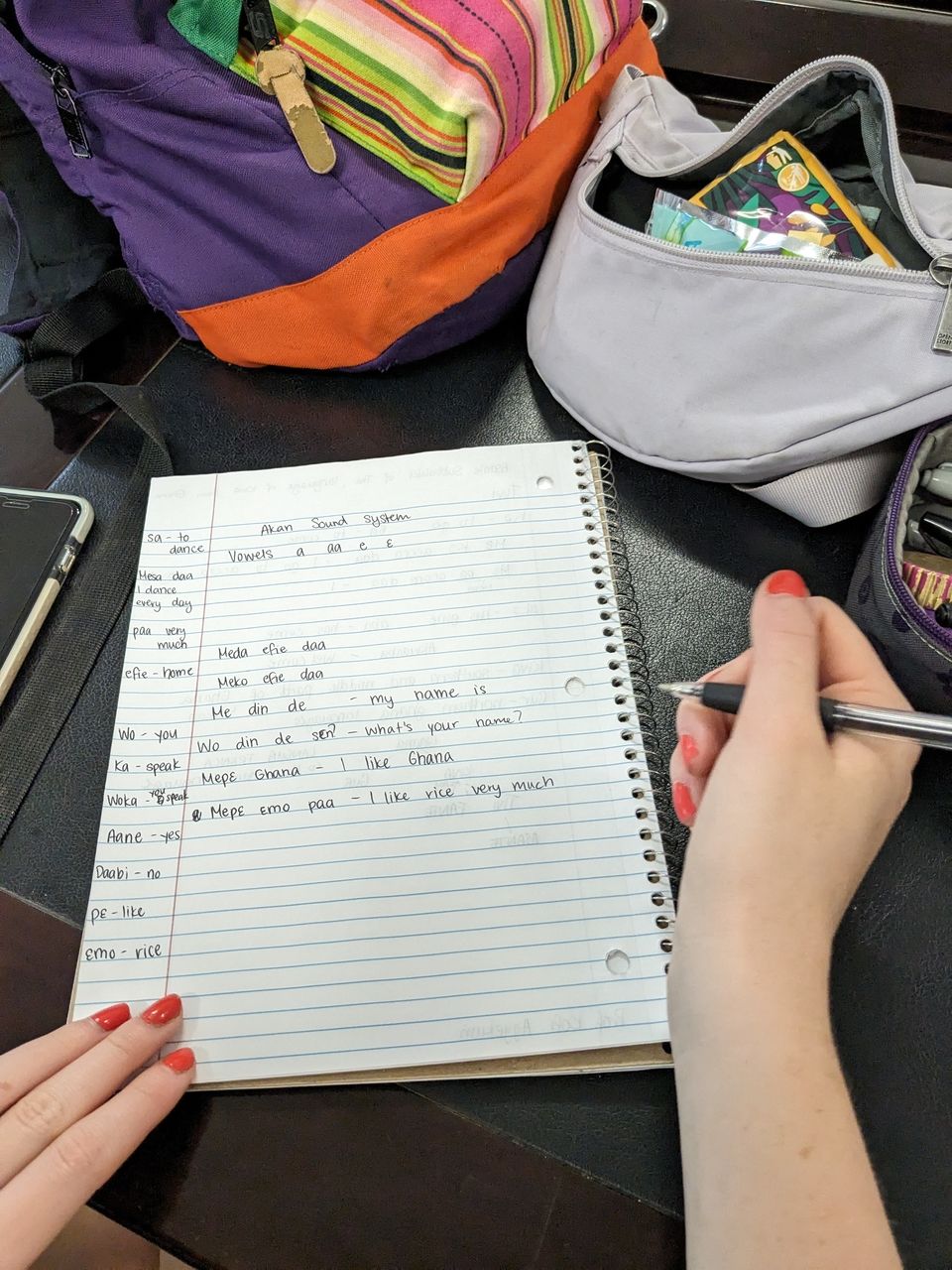
As the learners on the 2024 High School Summer Abroad program head out to Kumase, the capital city of the Asante people this weekend, they have been armed with a few words and phrases that will facilitate engagement with locals. We are excited for them to use the words and phrases they learned in their first Twi lesson!
Related Posts
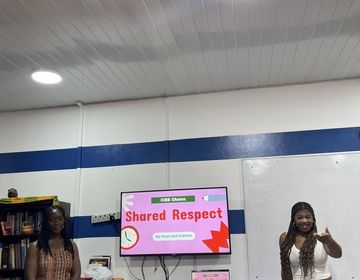
Student Project: Shared Respect
During this program, the participants worked in groups to create projects reflecting their experiential learning from the last three weeks. The following is a selection from Sabrina Addo and Maya... keep reading
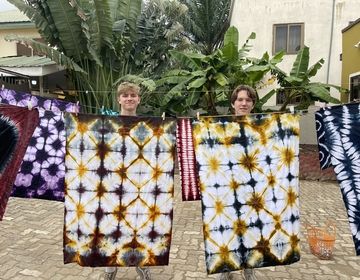
Tying Up Loose Ends
With only a few days left in our program, we are embracing every opportunity to make lasting memories and reflect on our incredible journey. One of the highlights of this... keep reading
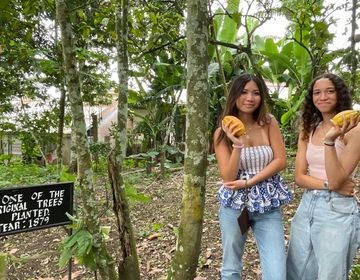
Visiting Ghana’s First Cocoa Farm
Student Blog Takeover: Milo and Anthea visit Ghana's first cocoa farm
